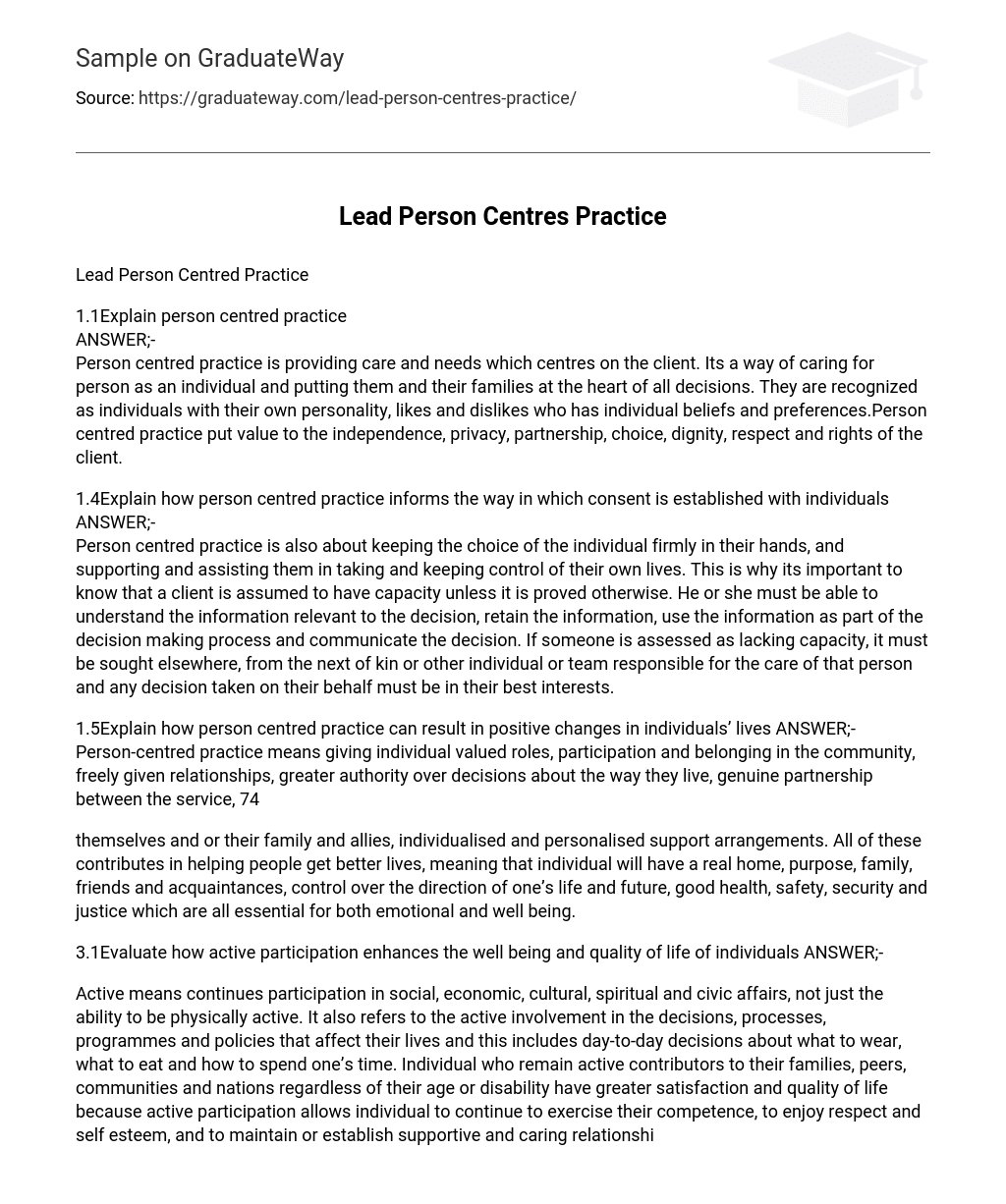Lead Person Centred Practice
1.1Explain person centred practice
ANSWER;-
Person centred practice is providing care and needs which centres on the client. Its a way of caring for person as an individual and putting them and their families at the heart of all decisions. They are recognized as individuals with their own personality, likes and dislikes who has individual beliefs and preferences.Person centred practice put value to the independence, privacy, partnership, choice, dignity, respect and rights of the client.
1.4Explain how person centred practice informs the way in which consent is established with individuals ANSWER;-
Person centred practice is also about keeping the choice of the individual firmly in their hands, and supporting and assisting them in taking and keeping control of their own lives. This is why its important to know that a client is assumed to have capacity unless it is proved otherwise. He or she must be able to understand the information relevant to the decision, retain the information, use the information as part of the decision making process and communicate the decision. If someone is assessed as lacking capacity, it must be sought elsewhere, from the next of kin or other individual or team responsible for the care of that person and any decision taken on their behalf must be in their best interests.
1.5Explain how person centred practice can result in positive changes in individuals’ lives ANSWER;-
Person-centred practice means giving individual valued roles, participation and belonging in the community, freely given relationships, greater authority over decisions about the way they live, genuine partnership between the service, 74
themselves and or their family and allies, individualised and personalised support arrangements. All of these contributes in helping people get better lives, meaning that individual will have a real home, purpose, family,
friends and acquaintances, control over the direction of one’s life and future, good health, safety, security and justice which are all essential for both emotional and well being.
3.1Evaluate how active participation enhances the well being and quality of life of individuals ANSWER;-
Active means continues participation in social, economic, cultural, spiritual and civic affairs, not just the ability to be physically active. It also refers to the active involvement in the decisions, processes, programmes and policies that affect their lives and this includes day-to-day decisions about what to wear, what to eat and how to spend one’s time. Individual who remain active contributors to their families, peers, communities and nations regardless of their age or disability have greater satisfaction and quality of life because active participation allows individual to continue to exercise their competence, to enjoy respect and self esteem, and to maintain or establish supportive and caring relationships. All of these have a positive effect on individual’s well being.





